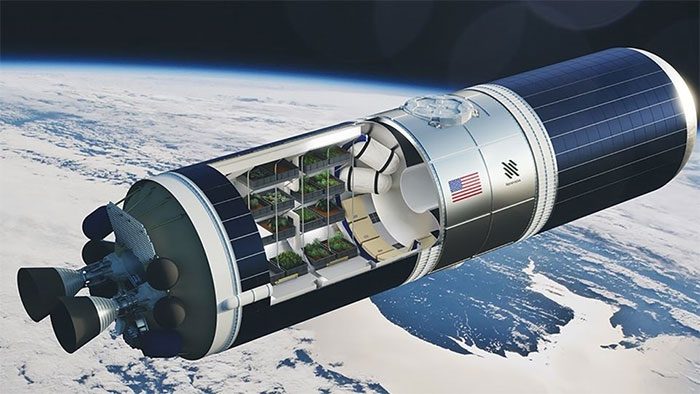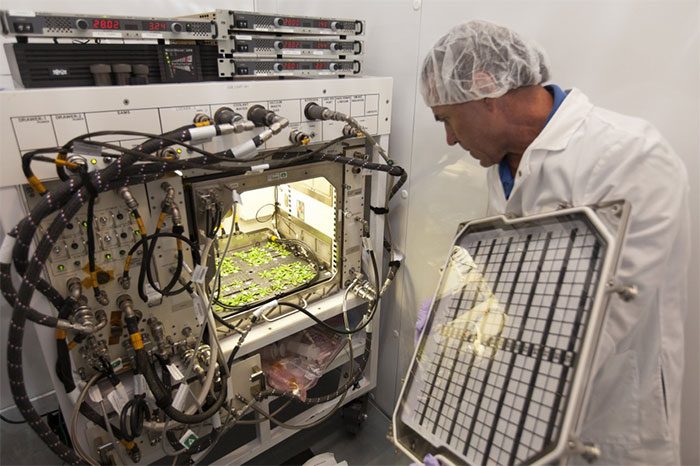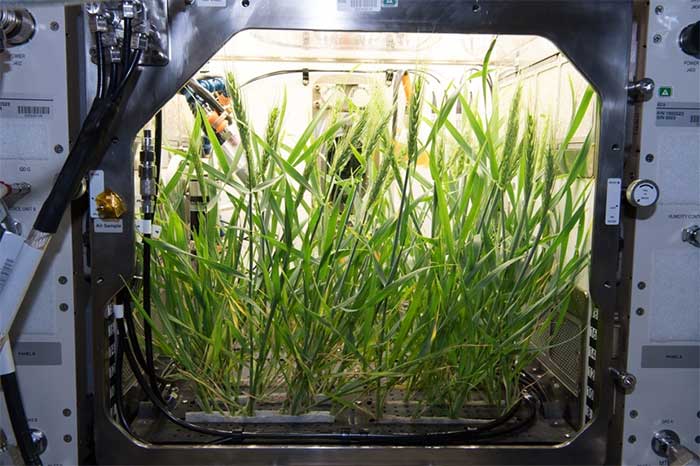Seeding in Space: A Concept for Developing Resilient Crop Varieties Amid Climate Change
With the climate crisis making it increasingly difficult to cultivate many staple crops, scientists are turning to methods of growing crop varieties outside of Earth.
A startup company, StarLab Oasis, based in Abu Dhabi, aims to seed in space to develop crop varieties that can thrive in harsh conditions. In 2023, StarLab Oasis plans to send seeds into orbit.
From soybeans to quinoa, these seeds will grow differently in space compared to on Earth. In a zero-gravity environment, plants will develop in unique ways and will also be exposed to cosmic radiation.
This could lead to seed mutations, potentially resulting in new, stronger, or higher-yielding crop varieties—such as plants that can grow in saline conditions, according to CNN.

Growing plants in space is carefully considered in light of the climate change impacts on Earth. (Photo: StarLab Oasis).
A Solution for the Future
Sending seeds into space will support “sustainability, climate change resilience, and food security on Earth,” said Allen Herbert, co-founder of StarLab Oasis. “Space is where you are limited in resources, energy, and space. It’s a great place to research and bring similar technology back to Earth.”
Many plant species have been mutated on Earth since the 1920s, and some have been exposed to chemicals or radiation, according to Connor Kiselchuk, a plant researcher at StarLab Oasis, who added that a few plant varieties were grown in space in the 1960s.

Scientists on the International Space Station experiment with seeding Arabidopsis—a flowering plant related to mustard. (Photo: NASA).
China has sent seeds into orbit since the 1980s, creating new crop varieties for farmers. This year, the International Atomic Energy Agency (IAEA) and the Food and Agriculture Organization (FAO) sent seeds into space for the first time, aiming to develop crops that can withstand climate change.
Allen Herbert noted that StarLab Oasis is among the first to commercialize this process. The company plans to collaborate with businesses, space agencies, universities, and non-profit organizations to send seeds into space for research or commercial purposes.
“The non-profit organization we are collaborating with is the International Center for Biosaline Agriculture based in Dubai. The parties are seeking to enhance the salt and drought resistance of crops like quinoa,” Kiselchuk stated.

Experimental Arabidopsis seeds developed after six weeks. (Photo: NASA).
Aspirations for the Future
With the project of sending seeds into space, StarLab Oasis will start by sending seeds to the International Space Station (ISS), where astronauts will cultivate the plants. However, the long-term goal is to send seeds to a commercial space station named Starlab, expected to be operational by 2027.
Once the crops are brought back to Earth, they will be germinated in the StarLab Oasis laboratory or from partner facilities. The crops will then be tested for their ability to grow in specific environments, such as drought or extreme heat.
Founded in 2021, StarLab Oasis currently has five employees and plans to expand next year. The company is supported by the Abu Dhabi Investment Office (ADIO) in the United Arab Emirates (UAE).
This enterprise is part of a $41 million initiative to increase food production in arid environments, which could benefit the UAE, a nation that imports 90% of its food.

Illustration of planting in glass containers attached to the space station. (Photo: StarLab Oasis).
“StarLab Oasis is an extremely ambitious and exciting project that will provide access to potential space science in developing agricultural technologies for a resource-limited world,” said Abdulla Abdul Aziz AlShamsi, acting director of ADIO.
This program is expected to enhance food production capabilities in space and may lead to missions producing food on the Moon or Mars.
Kiselchuk stated that plants also provide benefits in space, such as producing oxygen, filtering some waste water, and offering psychological benefits for astronauts far from home.


















































